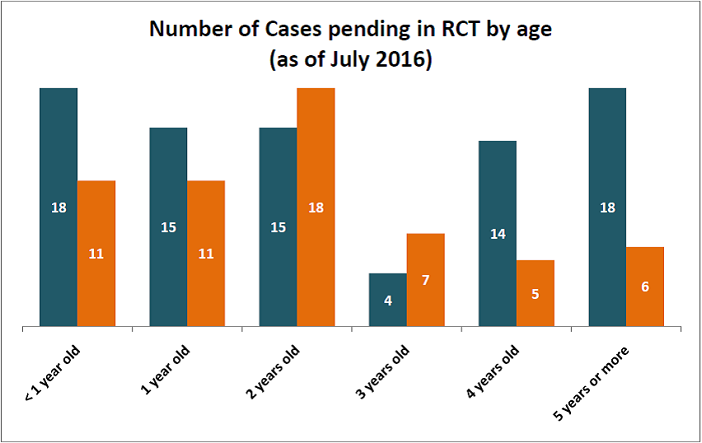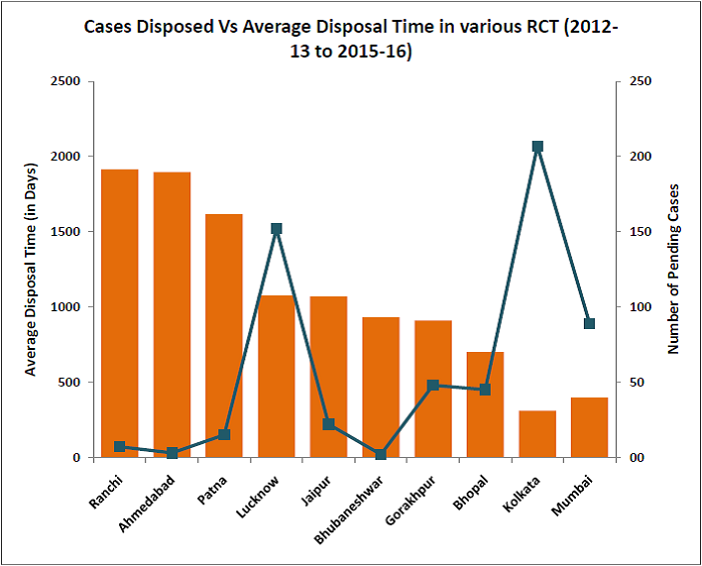[orc]Compensation paid to the Railway accident victims is granted only after the Railway Claims Tribunal (RCT) passes a decree to that effect. As per data available with the government, a total of 762 cases were disposed by 19 different RCT benches between 2012-13 and 2015-16 with an average disposal time of 605 days.
Compensation to the victims of Railway Accidents is governed by the Railways Accident and Untoward Incidents (Compensation) Rules. While ex-gratia is granted for immediate needs, compensation is given only after the claim is upheld by the Railway Claims Tribunals (RCT) setup across the country. As per data available with the government, the RCT took an average of 605 days to dispose 762 cases in the four year period from 2012-13 to 2015-16.
Ex-gratia for immediate needs
In case of an accident, ex-gratia relief is given by the Railways soon after an accident at the rate of:
- 15,000/- in case of death;
- 5,000/- in the case of grievous injury
- 500/- for simple injury
The ex-gratia is intended to meet the immediate expenses and is not taken into account at the time of final settlement of compensation claims.
The Compensation claim process
Compensation to the victims of train accident, as defined under Section 124 of the Railways Act, is not paid by the Railways on the basis of announcement. The claimant of the compensation has to file a claim in the Railway Claims Tribunal, which is a quasi judicial body, independent from the Railways. The amount of compensation is paid by the Railways after the claim filed by the claimant is decreed by the Tribunal in favour of the claimant and the decree so awarded by the Tribunal is decided to be satisfied by the Railways. The compensation payable is pre-defined based on whether the victim has died or is injured and also based on the type of injury. The amount of compensation in case of death has recently been increased to Rs 8 lakh from the existing Rs 4 lakh.
142 cases are pending with RCT
A total of 142 accident cases are pending with RCT. 84 of these cases are cases of death while the remaining are cases of injury. More than 1/6th of the cases are pending for more than 5 years and more than 60% of the cases are pending for more than 2 years. 65% (92 cases) of all the pending cases are in the Lucknow and Gorakhpur benches of RCT. Delhi, Bhubaneshwar, Guwahati and Nagpur benches of RCT have zero pendency while single digit cases are pending in the remaining 13 benches.

It took 605 days on average to dispose cases in the last 4 years
From 2012-13 to 2015-16, a total of 762 cases were disposed by the 19 benches of RCT. The average disposal time of these 762 cases was 605 days. For the 7 cases disposed by the Ranchi bench, it took an average of 1914 days or more than 5 years. The Ahmedabad bench that disposed 3 cases took 1896 days on average. Five different RCT benches took an average of more than 1000 days for disposal of cases. Guwahati bench did not dispose a single case since it did not have any cases. Chennai bench took the lowest average time of 94 days for disposal of 59 cases. Five different benches that disposed cases in these 4 years took an average time of less than a year to dispose cases. The Kolkata & Mumbai benches stand out as they disposed the highest and 3rd highest number of cases while taking only 310 and 398 days on average for disposal respectively.

The government admits that process is a lengthy one and hence it takes time. There are various stages involved like filing of cases, filing of written statement, filing of evidences, cross examination of witnesses/parties and the arguments. But it is surprising to note that some benches perform better than the other ones despite disposing a greater number of cases.
Featured Image: Train Accidents


